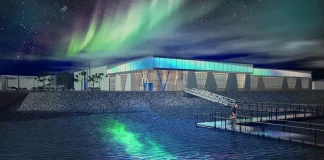Salmones Camanchaca’s director Tore Valderhaug has condemned environmental activists in a talk discussing the challenges facing the salmon sector in Chile.
Speaking at Stim 2022, Valderhaug criticised how the trend in Chile is “tougher regulations for salmon farming,” as authorities bow to demands from “radical environmentalists,” calling activists the “greatest threat” to the industry.
“Salmon farming uses an immaterial portion (sic) of the sea, but there are certain extreme environmentalists working to put limitations on its development,” Radio del Mar quoted Valderhaug as saying. The Salmones Camanchaca director highlighted how, while 40% of the country’s Exclusive Economic Zone has protected marine areas, only 0.001% of its is used for industrial salmon farming.
Juan Carlos Cardenas; director of the Ecocéanos Center, rejected the comments from Valderhaug, claiming that salmon farmers have always sought to criminalise social and environmental organisations in order to justify their actions.
Read more: Chilean president mulls limiting growth of farmed salmon industry
“This attempt to criminalize organizations that fight in Chile for the defense of the environment, public health and human rights of local communities, seeks to justify future actions of intimidation by employers’ associations against the socio-environmental movement,” Radio del Mar quoted Cardenas as saying.
Chilean President Gabriel Boric has expressed his intention to limit the growth of the farmed salmon industry in the country despite it being the second largest producer of farmed salmon globally, bringing in USD $5.1 billion to the country’s economy.
A bill presented in the lower house of Congress at the end of 2021 when Boric was a lawmaker would modify an existing law on Fisheries and Aquaculture to exclude the cultivation of non-native species, which includes Atlantic salmon, in protected areas of Chile, such as parts of Magallanes.
”We have to aim for development that does not destroy us, because destroying the environment is destroying ourselves. What I am clear about is that there cannot be mariculture in marine protected areas. That is as simple as…enforcing the law,” Boric said.










